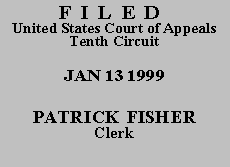

| JOHN R. CARLETON, Personal
Representative of the Estate of
Angela Nell Carleton, deceased,
Plaintiff-Appellant, and DEBORAH STURDIVAN BAUGHMAN, Plaintiff, v. CITY OF TULSA, OKLAHOMA, a municipal corporation; MIKE HANLEY; DAN MCSLARROW, Corporal; JOHN DOE, Officer, Defendants-Appellees.
JOHN R. CARLETON, Personal Representative of the Estate of Angela Nell Carleton, deceased, Plaintiff-Appellee, and DEBORAH STURDIVAN BAUGHMAN, Plaintiff, |
|
| v.
CITY OF TULSA, OKLAHOMA, a municipal corporation, Defendant, and MIKE HANLEY; DAN MCSLARROW, Corporal; JOHN DOE, Officer, Defendants-Appellants.
DEBORAH STURDIVAN BAUGHMAN, Plaintiff-Appellant, v. CITY OF TULSA, OKLAHOMA, a municipal corporation; OFFICER MIKE HANLEY, CORPORAL DAN MCSLARROW, OFFICER JOHN DOE, Defendants-Appellees.
DEBORAH STURDIVAN BAUGHMAN, Plaintiff-Appellee, |
|
| v.
CITY OF TULSA, OKLAHOMA, a municipal corporation, Defendant, and MIKE HANLEY; DAN MCSLARROW, Corporal; JOHN DOE, Officer, Defendants-Appellants. |
|
These consolidated appeals arise from suits brought by plaintiffs pursuant to 42 U.S.C. § 1983 involving a high speed police chase. The vehicle pursued by the police crashed into the vehicle driven by Angela Carleton. Ms. Carleton was killed, and her passenger, Deborah Baughman, was injured. Plaintiffs brought individual suits, which were later consolidated, against the officers involved in the chase and the City of Tulsa, alleging violation of plaintiffs' substantive due process rights as a result of the officers' reckless behavior and deliberate indifference to plaintiffs' constitutional rights and the City's failure to train the officers.(1)
The district court granted summary judgment in favor of defendants, finding that the officers' actions were not reckless and in complete indifference to risk, and, therefore, plaintiffs could show no violation of their constitutional rights. The district court also found that, because there was no constitutional violation by the officers, plaintiffs' § 1983 claims against the City must fail. Plaintiffs appeal the district court's ruling that defendants did not violate plaintiffs' constitutional rights, and the officer defendants cross-appeal the district court's refusal to grant them qualified immunity. Our review of the district court's grant of summary judgment is de novo, see Kaul v. Stephan, 83 F.3d 1208, 1212 (10th Cir. 1996), and we may affirm on any basis supported by the record, see United States v. Sandoval, 29 F.3d 537, 542 n.6 (10th Cir. 1994).
These appeals were informally abated pending this court's en banc decision in Williams v. City and County of Denver, No. 94-1190, 1998 WL 380518 (10th Cir. June 26, 1998), which was, in turn, abated pending the Supreme Court's decision in County of Sacramento v. Lewis, 118 S. Ct. 1708 (1998). Lewis governs the outcome of these appeals. In that case, the Court held that "high-speed chases with no intent to harm suspects physically or to worsen their legal plight do not give rise to liability under the Fourteenth Amendment, redressible by an action under § 1983." Lewis, 118 S. Ct. at 1720; see also Radecki v. Barela, 146 F.3d 1227, 1232 (10th Cir. 1998) (applying Lewis in holding that officer's exercise of instantaneous judgment in emergency situation did not shock the conscience and was, therefore, not actionable under § 1983), petition for cert. filed, 67 U.S.L.W. 3322 (U.S. Oct. 26, 1998) (No. 98-69).
Plaintiffs do not allege that the officers intended them physical harm. Consequently, defendants' actions in the emergency situation surrounding the high-speed chase do not shock the conscience. There was no violation of plaintiffs' substantive due process rights necessary to maintain an action under § 1983. Because there was no constitutional violation, we do not reach the question of whether defendants are entitled to qualified immunity. See Lewis, 118 S. Ct. at 1714 n.5. Finally, plaintiffs' § 1983 claim against the City must also fail because there was no constitutional violation by the officers. See Webber v. Mefford, 43 F.3d 1340, 1344-45 (10th Cir. 1994). AFFIRMED.
Entered for the Court
Circuit Judge
*. This order and judgment is not binding precedent, except under the doctrines of law of the case, res judicata, and collateral estoppel. The court generally disfavors the citation of orders and judgments; nevertheless, an order and judgment may be cited under the terms and conditions of 10th Cir. R. 36.3.
1. Because the record on appeal does not contain the complaint or any of the summary judgment pleadings or briefs, we discern the nature of plaintiffs' allegations from their brief on appeal.